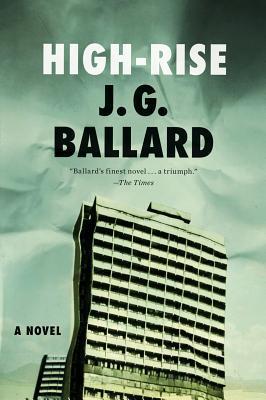What doyouthink?
Rate this book


208 pages, Paperback
First published November 1, 1975




"Later, as he sat on his balcony eating the dog, Dr. Robert Laing reflected on the unusual events that had taken place within this huge apartment building during the previous three months. Now that everything had returned to normal, he was surprised there had been no obvious beginning, no point beyond which their lives had moved into a clearly more sinister dimension."
"In a sense life in the high-rise had begun to resemble the world outside - there were the same ruthlessness and aggression concealed within a set of polite conventions."

Later, as he sat on his balcony eating the dog, Dr Robert Laing reflected on the unusual events that had taken place within this huge apartment building during the previous three months.This is one instance where I'm painfully aware of the inadequacy of a star-rating system for books. To give Ballard'sHigh-Risethree stars does very little to capture its strengths, but more importantly, its ultimate failure as a novel. I'm going to try and do that in my review here, but just in case my rambling goes right off the rails, check outJeffrey's spot-on assessment here.

